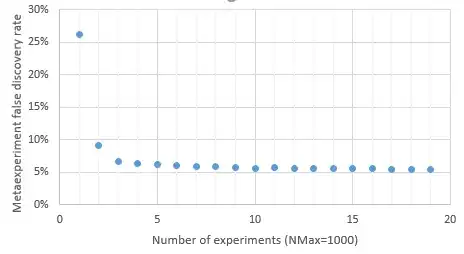This question is about a kind of bias that is slightly more subtle than doing multiple tests without caution (related to multi-hypothesis testing).
Experimenters are willing to reject an hypothesis $H_0$ that a coin is fair, expecting to find a higher probability for heads. When flipping 100 coins, significance of $\alpha=5$% is obtained with 59 heads.
An obvious bias consists in forgetting negative results and only publishing positive ones. At worst: do 100 flips multiple times until you get more than 59/100 heads and publish only the last experiment.
Instead, the experimenter does multiple flips and stops when "he feels like stopping" and publish all the previous flips. If he is secretly willing to reject $H_0$ this might create a bias: stopping at a point the results are rather positive.
At worst, he might stop when the test for all previous flips is positive. Actually, I'm quite sure the stopping time $T:$"first time the test is significant on all previous flips" is almost surely finite. Do you confirm this?
Is there a name for this kind of bias? Do you know of any studies or texts about it?
